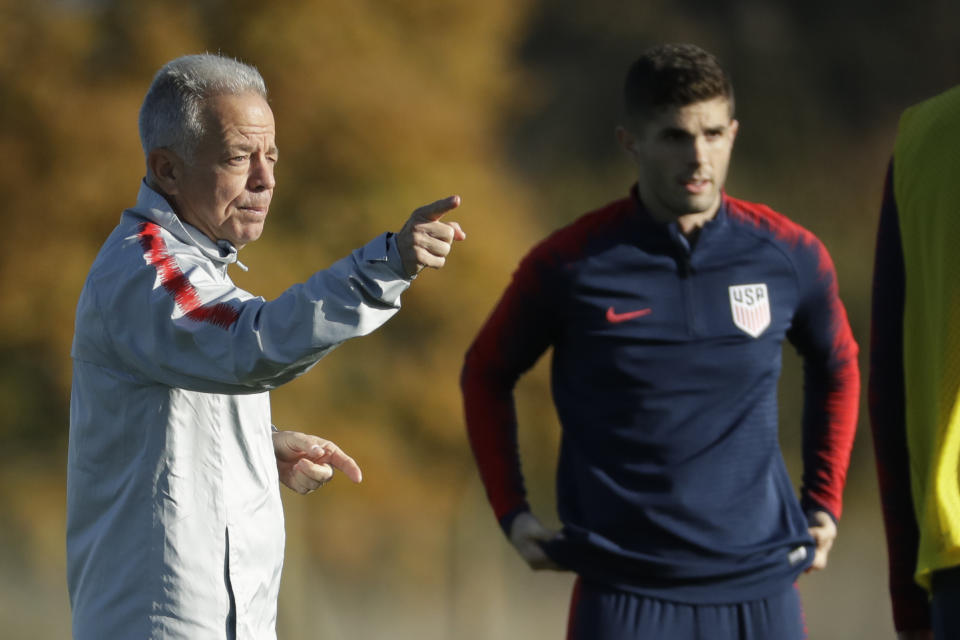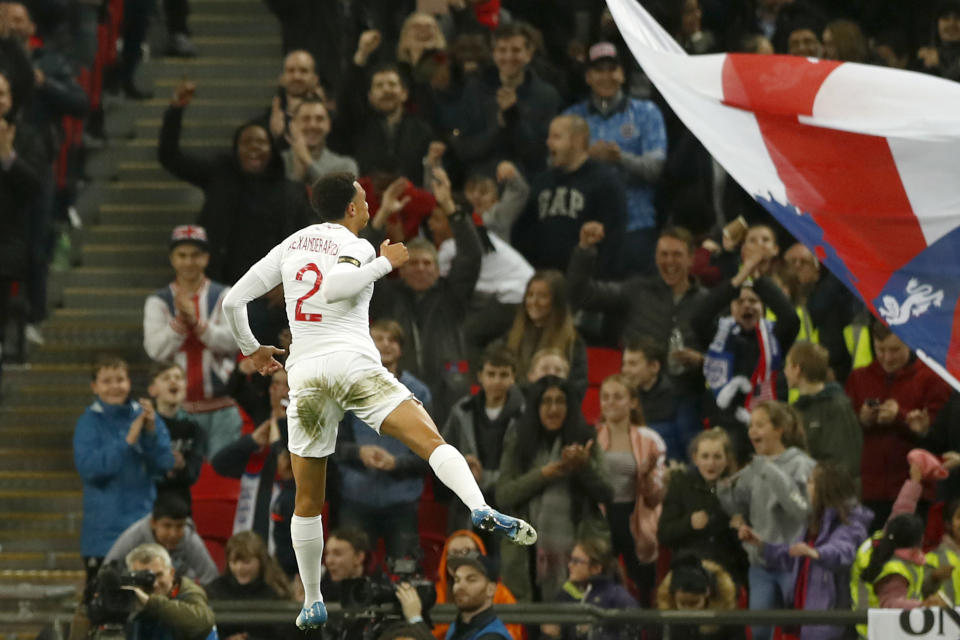The USMNT's best way back to world relevancy is looking at the country that just throttled it
The last time the United States men’s national team played England, they met at the Royal Bafokeng Stadium in Rustenburg, South Africa, in both teams’ group stage opener of the 2010 World Cup. Steven Gerrard gave England a quick lead, before Clint Dempsey’s long shot skittered underneath goalkeeper Robert Green.
The 1-1 tie flattered the Americans a tad, and it was probably telling that goalkeeper Tim Howard was named man of the match. But it hardly felt unearned. And that was when England was anchored by some of the biggest best players in the world at their position: defenders John Terry and Ashley Cole, the famously irreconcilable midfielders Gerrard and Frank Lampard, and forward Wayne Rooney.
Thursday’s friendly between these sides at Wembley Stadium painted a very different picture. A mostly full-strength USA was resoundingly outplayed by an England team that was much more diluted and could fairly be described as a glorified B-team.
The Americans created a few spells of threat here and there, but England was never troubled. Jesse Lingard scored on a curler and Trent Alexander-Arnold smashed in a second on the overlap in the span of two minutes in the first half. Callum Wilson marked his England debut with a tidy finish in the second half.
More painful than the 3-0 loss was the unshakable image of the Yanks lacking in intensity and desire at the ironic venue, a young team perhaps too awed by its surroundings.
But while it may not have felt like it, seeing as the teams were clearly in different leagues, England actually provided something of a model for this USA team. Just as soon as it finally has a full-time head coach, that is, after 13 months under interim man Dave Sarachan.

South Africa in 2010 was confirmation that England was in a real downturn, going out in the Round of 16. It had failed to make Euro 2008 altogether, and in 2012 and 2016, it would be stranded in the first knockout game – to little Iceland in the latter tournament. At the 2014 World Cup, meanwhile, the Three Lions failed to survive the group stage for the first time since 1958.
But in 2016, England bet big on the young talent that had shown flashes at those failed tournaments in the previous World Cup and Euro. It happened sort of unintentionally. Sam Allardyce was forced to resign after just one game. Big Sam was famous for his straightforward, direct, just-get-a-result tactics. He was hardly the man to take England forward. But a scandal pushed him out and the job fell to the unfancied Under-21 team manager, Gareth Southgate.
He implemented a very un-English, much more fluid system. And it unleashed a new golden generation breaking through, which had dislodged a previous golden generation. He made the team a meritocracy, creating a relentless competition for jobs. The old guard was moved on, the last member of it waving off on Thursday as Wayne Rooney was given a sort of testimonial final cap – his 120th, a record for an England outfield player.
And as the story goes, England made its deepest run in a World Cup since 1990 this summer, stranding in extra-time of the semifinals.
Crucially, the English reconsidered what their national team was and should be. And they concluded that the signature direct style that had served them well for decades was best discarded. By starting more or less fresh, they could cater a new style entirely to their dazzling collection of young talent – Raheem Sterling, Harry Kane, Marcus Rashford, Dele Alli and all the rest.
The U.S. is plainly in a downturn as well. The 2018 edition was the first World Cup missed since 1986 and results at the senior level had been trending down for some time – at both the senior and youth levels. The fourth-place at the 2015 Gold Cup was the worst in a year that didn’t coincide with World Cup qualifying since 2000.
But the Americans now have a golden generation of sorts coming through as well. Christian Pulisic is clearly the best talent this nation has ever produced, and is living up to his billing. In Weston McKennie and Tyler Adams, he should be flanked by two other central midfield prodigies. Tim Weah is a scintillating young winger; Josh Sargent a promising striker. The age of those five is 20, 20, 19, 18 and 18, respectively. There is enough young talent elsewhere on the field to suggest that the supporting cast will be adequate, at the very least.

The path forward for the U.S. isn’t clear, seeing as it still doesn’t have a manager – although Gregg Berhalter’s appointment appears imminent. And after the chaos of the last few years, it will take time for the new boss to sort through the mess and figure out what he has at his disposal.
But England’s big rebuild underscores the value in a complete reassessment, especially when there is a significant amount of talent in the pipeline. The Americans may yet wind up with something that looks similar to previous incarnations of the team. But they should, at least, fit the system to the new players, as England did, rather than shoehorning them into some familiar style.
It will probably be a while, but that’s the likeliest way to at least become competitive with teams like England again. And to close the gap back to roughly where it was in 2010.
Leander Schaerlaeckens is a Yahoo Sports soccer columnist and a sports communication lecturer at Marist College. Follow him on Twitter @LeanderAlphabet.
More from Yahoo Sports:
• Tampa in model’s crosshairs after husband’s MLB snub
• Ex-Cowboys star comes out as gay decades after retiring
• Steelers’ cruel goodbye to Bell is revealing
• Mexico shamed, fans angered by NFL debacle


